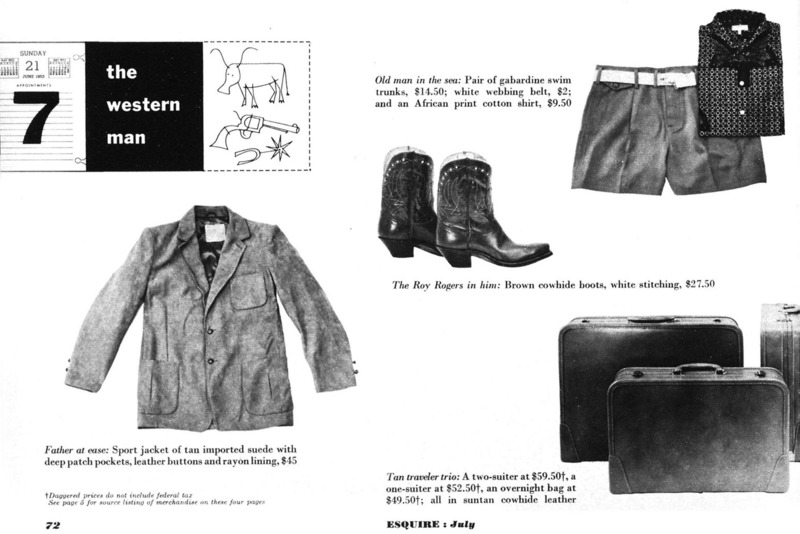Consumption as Identity
These ads in Esquire's Father's Day collection sell a lifestyle instead of a product. In the 1950's (and even today) it is incredible, while also a little scary, that an individual's identity steams directly the consumer goods that we buy. For instance, the idealized Western Man is someone who (ironically) doesn't put much stock in material goods, but rather is someone who enjoys a hard days work and whose worth is not what's in his bank account, but rather his word and the relationships that he's cultivated throughout his life. The items that he is defined by (atleast according to Esquire) are his tan suede sports jacket, his short swimming trunks, his cowboy boots, and his cowhide briefcases for his long days away from home. To become a proud western man, it would cost roughly $260, which is one of the less expensive lifestyles that was being sold in Esquire in 1953.
But even today we see how American society has come to define itself by the consumer goods we posses. But instead of the individual goods promising a lifestyle, consumerism has evolved to sell brands as a way of living a certian lifestyle. Brands like Nike, Ralph Lauren, Vineyard Vines, and Prada all sell us a lifestyle which can only be acquired through buying their products.
